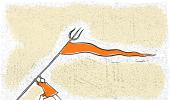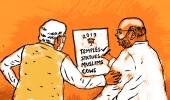'Will Muslims in large numbers react positively, especially in the context of the events of the last thirty years?'
'In the process, could Modi end up alienating his core supporters?'
A fascinating excerpt from Jaithirth Rao's The Indian Conservative : A History of Indian Right-Wing Thought.
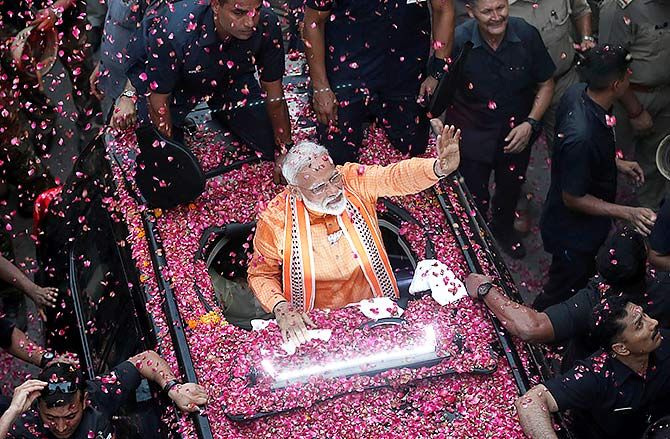
And then came Modi.
It is always difficult to be objective about contemporary issues or personalities.
But let us make an attempt at analysis.
Modi is not from Uttar Pradesh, Maharashtra, Vidarbha, the Punjab or Bengal -- the traditional homes of Hindu nationalist leaders.
Modi is most definitely not from the upper castes - Brahmin, Rajput or Bania.
The BJP publicity machine has made sure that his backward caste origin is well known.
The Bhandarkar-Lajpat Rai dream of an overarching Hindu identity that effectively leaves caste behind can only have credibility if genuine, not symbolic, leadership finally passes to someone who is lower caste by birth and who makes it on merit.
Modi symbolises precisely this.
He comes with a track record in state administration, and in that he resembles Morarji Desai, V P Singh, P V Narasimha Rao and H D Deve Gowda.
His Hindu nationalist credentials are in no doubt whatsoever.
But that is not his core political message.
Modi is arguing, both subtly and not so subtly, for an aspirational and achievement-oriented Indian society with a strong Hindu flavour.
The repeat motif is that India's time has come.
Providence has given India the opportunity to make itself prosperous, strong and great, and here is a monastic, dedicated hardworking leader who represents this opportunity.
And in the pursuit of national goals, Modi demands of his followers important sacrifices.
The path is not an easy one, but a tough one.
Bankim could not have said it better.
A content analysis of Modi's speeches reveals the virtually unbroken connection with Anandamath, where Bankim highlights the importance of sacrifice and effort in order to re-energise Mother India.
The question is whether this new version of Hindu nationalism passes the conservative test.
It is definitely market friendly but, arguably, not sufficiently market friendly.
A move away from an intrusive State that has disdain for voluntary contracts would have been more palpable if the previous dispensation's retrospective taxation law had been abandoned and if there had been greater genuine, instead of cosmetic, privatisation.
But on the other hand, if we favour gradualism, this step-by-step embrace of the markets may not be such a bad thing.
On cultural matters, there is a refreshing approach, grounded in empiricism.
Despite continued activity by the anti-Macaulay elements in the social media, the BJP government has had no hesitation and has felt no embarrassment in openly embracing many aspects of our Raj legacy.
We have connected with Belgium, France, Israel, Britain and the US in honouring Indian veterans of the First World War and Second World War.
The earlier canard that these Indian soldiers, sailors and airmen were mere mercenaries or wicked collaborators has been openly dropped.
Pandit Nehru had argued that persons of Indian origin in East Africa should think of themselves as Africans and not Indians.
Today, there is no hesitation in welcoming and embracing the Diaspora.
The introduction of the Pravasi Divas and the Pravasi awards are unique BJP contributions.
**
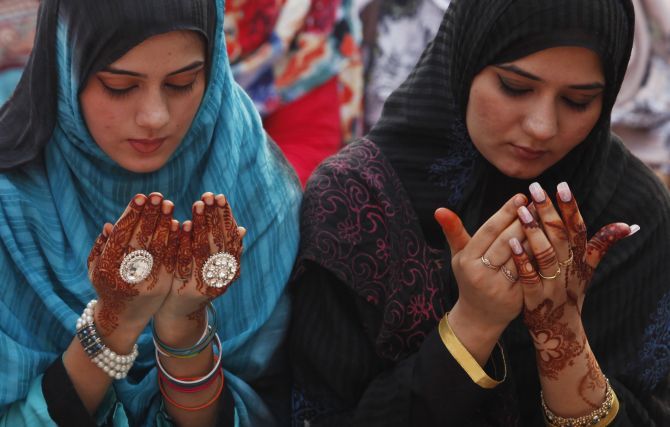
On social matters, the BJP's record appears more mixed.
Continued attempts at Hindu consolidation across castes has meant that there is some softening in the caste system.
The religious angle has been more problematic.
Emphasis on the ban on cow slaughter and cattle transportation has resulted in extreme elements indulging in mob violence.
The argument that there have been no major riots or State-sponsored violence is a strong one, but it is not a sufficient one.
Conservatives can never go along with tolerance for mob violence.
This remains a question mark and a source of anxiety.
The reaching out to Sufi Muslims and smaller groups like Bohras represents an interesting contrast.
It is as though Hindu nationalists are now taking an interest in looking at Indian Muslims not as a monolithic entity, but as a part of Indian diversity.
The outreach to Muslim women who are seeking to free themselves from discrimination and persecution is also an interesting one.
But the jury is out as of now.
How the BJP manages these tensions, which can be both creative and destructive, will be interesting to watch.
Within the Hindu nationalist movement itself there remains an ongoing tension between those who push for economic growth and technological progress, both of which demand a certain amount of accommodation with Western and global influences, and those who are more concerned with temple building, temple rituals, cow protection and opposition to genetic technologies.
This might become the real problem for Hindu nationalism in general and for the BJP in particular in the days to come.
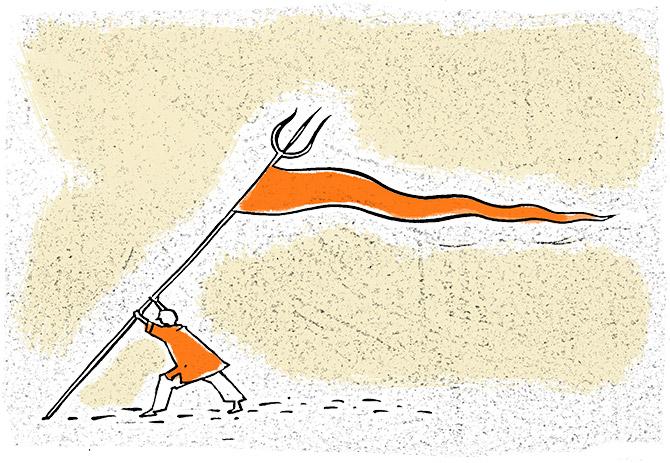
An aspirational class that likes modernity but is also comfortable with diverse traditions is the key growing political constituency.
Catering to this constituency, which views politics instrumentally, may require the toning down of Hindutva and embracing modern technology and growth-oriented economics.
This is precisely where the creative tension arises.
Discarding sharp identity positions like Hindutva can result in the core electoral base losing interest.
In the 1980s, the BJP opted to tone down Hindutva and adopt a woolly-headed doctrine called Gandhian socialism.
Going into the 2004 election, it appeared that the BJP was not that different from the Congress.
This may have led the hard-core Hindutva-oriented electoral base to be less enthusiastic than they would otherwise have been.
Another source of ongoing tension is the fact that despite recent successes in the north east and in the east and inroads in Karnataka, large parts of peninsular India still present challenges for Hindu nationalism.
The challenge of dealing with multiple tensions and trade-offs leads to the possibility that Bankim's vision of a regeneration of the Hindu collective gets attention only sporadically and episodically and not in a sustained manner.
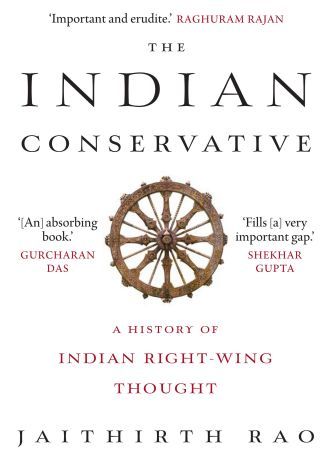
Modi's second victory is in some ways too recent for us to fully understand or evaluate.
The step-by-step extension of Hindu nationalism across all regions is noteworthy.
The continued partial success in creating a pan-Hindu identity that seems to finally be overcoming horizontal and vertical caste barriers is also a measure of the distance Hindu nationalism has come from Bankim's days.
Modi's victory acceptance speech rather unexpectedly introduced the 1857 motif.
In 1857, Hindu and Muslim sepoys had emerged as a 'band of brothers' against a common adversary.
It's almost as if Modi had read the historian Rudrangshu Mukherjee's account of this event.
But Modi did not have to go there at all.
He could have stuck to Savarkar.
The early Savarkar had written about the common national nature of the 1857 rising.
It was Savarkar who had first referred to the events as the First War of Independence.
Modi seemed to be going back to the intellectual traditions begun by Savarkar, albeit the early Savarkar, not the later one.
It is one thing to create a 'band of brothers' feeling across complex identity groups like Hindus and Muslims in a war-like situation.
Will Modi try to do it in peacetime conditions? If he does, will he succeed?
Will Muslims in large numbers react positively, especially in the context of the events of the last thirty years?
In the process, could Modi end up alienating his core supporters? All of these are imponderable and fascinating questions.
The answers will finally come to historians of the future.
We will be witnesses or saakshis to events and the trends as they unfold.
Excerpted from The Indian Conservative: A History of Indian Right-Wing Thought by Jaithirth Rao, with the kind permission of the publishers, Juggernaut.
